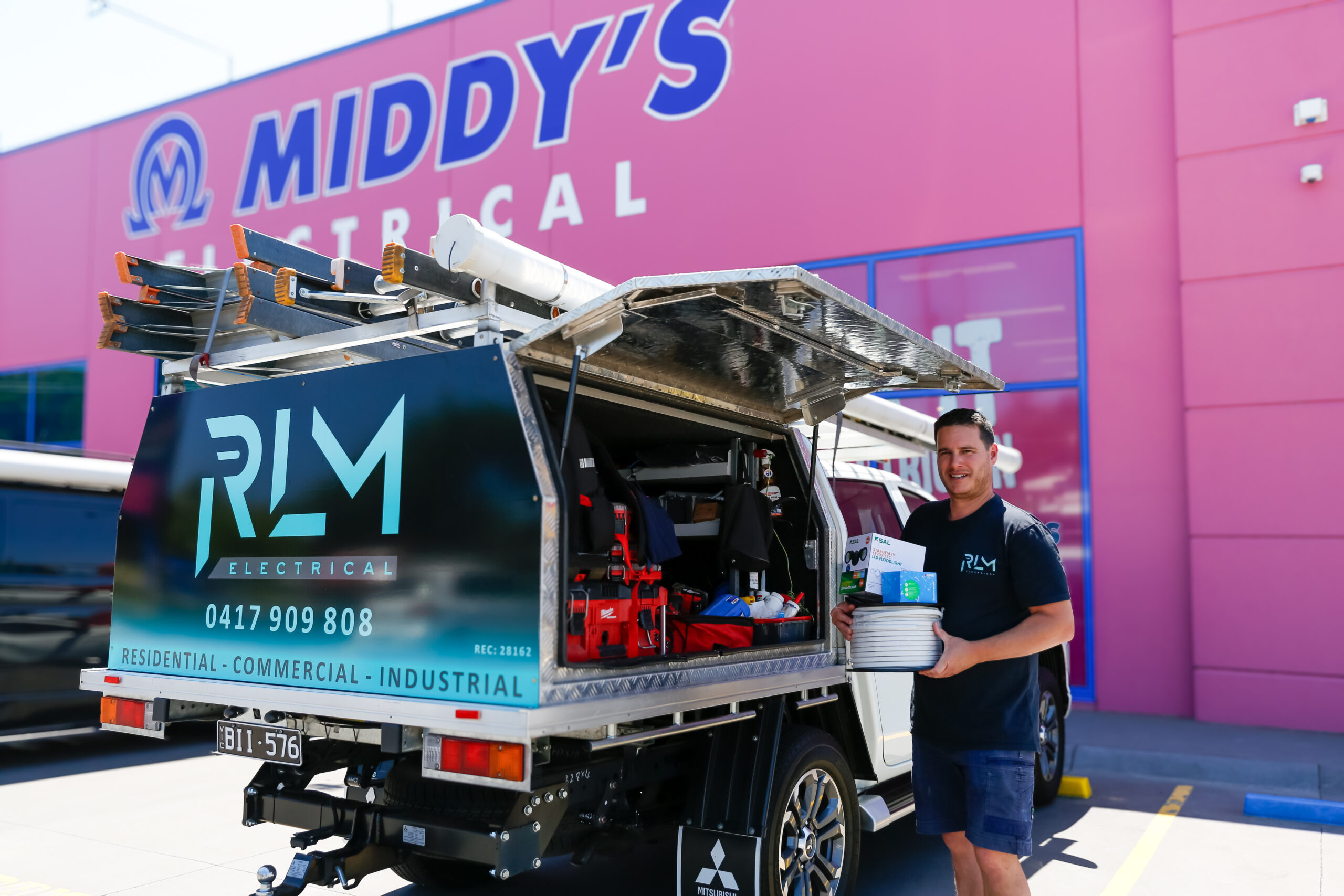How to become a strata electrician
Working in strata comes with added complexity, but the payoffs for contractors willing and able to develop solid relationships are seriously impressive.
With more Aussies ditching the quarter-acre, single-family home dream in favour of higher-density living, opportunities are plenty for electrical contractors looking for consistent work at a larger scale.
Enter strata electricians, who manage everything from switchboard upgrades and data cabling, to security, CCTV and lighting in common areas.
While the work itself isn’t drastically different to the usual tasks of an electrical contractor, successful strata electricians plan ahead, understand the scope of work in more complex environments and, crucially, develop rock-solid relationships with strata managers and owners committees.
What does a strata electrician do?
For Phil Fraser, who’s run PRF Electrical in Perth since 1985 and shops at Myelec, strata work is mostly about maintenance. “It’s generally lighting and perhaps fire systems or smoke alarms and the like,” he says.
“Beyond that, there’s often retail attached to strata, so we’ll do fit-outs in retail shops.”
Because the work is business-to-business, he says there’s greater potential to earn consistent income.
“With residential maintenance, there is often an unrealistic expectation of cost versus performance, whereas there’s a straightforwardness to working with strata companies – we do the work, and we get paid.”
Working in strata can also form part of a full-service approach to customer management. “We’re an all-rounder, so we like to be able to offer a start-to-finish solution for the majority of our customers,” explains Chris O’Brien, Founder of Leolec in Brisbane and a customer at CNW.
“Especially in the commercial space, we don’t want them having to call another electrician to do bits and pieces on site because there’s a higher chance of losing that work.”
Whatever the approach, most contractors agree strata work can give business coffers a regular boost alongside other domestic and commercial work.
“Strata isn’t our main income, it’s more a top-up thing,” says Middy’s customer Troy Watson from Festerville Industries in Victoria. “What I’ve got is a couple of stratas, and probably once a month or twice a month, we do little jobs.”
How electricians can streamline the strata process
What differentiates strata work from other electrical work is the added organisational complexity. In many cases, the owners committee decides on the work required and who will carry it out, allowing the strata manager to liaise with the chosen contractor about the work. Said contractor then fronts up to work at apartment 601 – where the resident is hopefully aware that he or she is coming to fix a light or replace an intercom system.
“Half the time, the body corporate will engage you for the work and you send out a detailed work schedule that they’re supposed to distribute to the residents,” O’Brien says. “But that doesn’t always happen, so you might end up changing an emergency light fitting at someone’s front door while they’re trying to come out the door for work in the morning.”
Joshua Baldwin, Principal and Executive Director of Adelaide strata manager Munro Property, says having a basic understanding of how strata works is the best way to avoid problems, issues and no-shows.
“It’s not just Dorothy’s house, it’s Dorothy’s house as part of a community, and contractors need to know how her electrical network integrates into the greater scheme of things,” he says.
“Often electricians assume sensor lights on the outside of a property, for example, must be the strata’s responsibility, but in most cases, they’re not."
“Another common issue is the network provider may only have a very short line into a property, so electricians who know and understand that distribution boards can be scattered around a strata complex and where to find them is advantageous.”
Planning – specifically, phoning – ahead can also help to streamline the process. “Calling the strata manager and having a conversation about where the main distribution is located and if there’s a key that you need, rather than getting to the property and realising you need to see the strata manager to gain access to the key to be able to terminate power, is really important,” Baldwin says.
The importance of electrical contractors building strata relationships
Landing and maintaining strata clients is pretty much all about one thing: relationships. “It depends on who the property manager is at the time as to who gets the work, so it’s about honing those relationships,” Fraser says.
Baldwin confirms that in some properties, one contractor has the run of the place. “There are electricians that we have solely for some properties because they know that property. There’s a property that’s got around 200 units here in Adelaide, and it’s quite a complex property. The same electrician is used constantly, not only by the strata corporation but the individual owners as well, just because that electrician has built a relationship and knows the infrastructure through and through.”
Strata managers typically look after upwards of 10 or 20 apartment complexes, so securing one job can quickly lead to more work if you keep your clients happy.
“First, get your foot in the door with a strata company, and once you’ve got your reputation and they know what you can do, hopefully, they have a few properties they look after, which means you’ve got some regular income,” Watson says.
How electricians can get in the good books of strata managers
- “Always provide documented evidence of the before and after of every job – when you were there, how long you were there for and what you did,” says Phil Fraser.
- “There are differences in legislation regarding things like common area smoke alarms and common area emergency lighting – know this stuff back to front,” says Chris O’Brien.
- “Keep your insurances and the qualifications of your team up to date. Strata managers often want to see working at heights certifications and elevated work platform tickets updated regularly,” says Phil Fraser.
- “Major projects are discussed by the owners committee, not the strata manager. Make yourself available to these people and focus on building relationships with them,” says Joshua Baldwin.





Comments (0)
Write a Comment